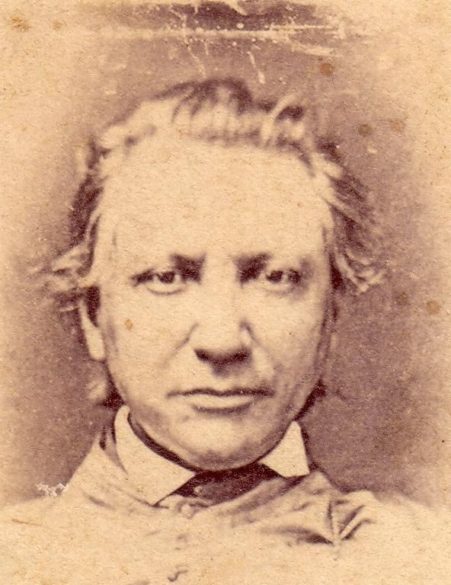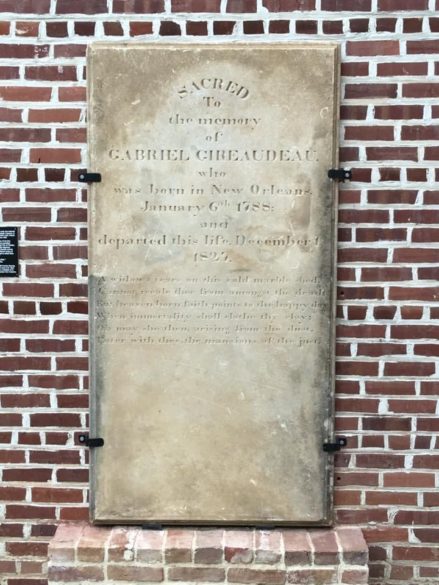From the Archives
By Mary Woodward
JACKSON – Before I begin this week’s article, let me say that having watched the storming of the U.S. Capitol last week by an incited mob, this brutal moment is now a part of our collective memory and a part of our history. How it is recorded will be a complicated and challenging task.
When we get beyond the rawness of this shock, how will we process it and how will we remember it? That is yet to be seen. History is indeed messy.
For now, let us turn to some more of our diocesan history. This week we will see how memory influences history as I begin a two-part article on French New Orleans Natchez connection.
In his book, Cradle Days of St. Mary’s, written in 1941, Bishop Richard O. Gerow, bishop of the diocese from 1924-1966, captures the early history of Catholic Natchez. He chronicles the days leading up to the establishment of the then Diocese of Natchez in 1837 and then carries the story forward through the early bishops.

The book is a treasure trove of how the church survived those days, and it features many of the people who helped establish the Catholic community. In the chapter entitled “Bishop Chanche Comes to Natchez,” Bishop Gerow highlights Madame Felicité Girodeau, who had come to Natchez from New Orleans with her husband Gabriel in 1802.
The Gireaudeau’s (proper spelling) were very active in the Catholic community and served as godparents in several of the baptismal records for both slaves and free. Mr. Gireaudeau served on the board of the Roman Catholic Society of Natchez. Sadly, he died in 1827 without receiving the last rites of the church as there was no priest assigned to the town at that time.
After Gabriel’s death, Madame Gireaudeau offered her parlor as a place for Mass when priest’s were sent to tend to the flock prior to Bishop John Joseph Chanche’s arrival in 1841. According to “Cradle Days” Madame Gireaudeau let Bishop Chanche, also of French decent, occupy one side of her house for several weeks until a house could be procured for him.
Allow me to share Bishop Gerow’s description of Madame Gireaudeau:
An interesting personage in the Catholic life of Natchez during this time was Madame Felicitê Girodeau, who had come to Natchez from Louisiana in 1802. She was a woman of education and culture, and above all, a devout Catholic.
Her husband, Gabriel Girodeau, who had kept a jewelry store on Main street and whose name is prominent in the record book of the minutes of the Roman Catholic Society of Natchez (he was for a time its president), had died in 1827, leaving her in comfortable circumstances but without children….
Of an active and charitable disposition, Madame Felicitê was present at all extraordinary occasions – in sickness, as an angel of kindness; at marriages; at births, and at deaths – whenever she could lend a helping hand. In all things pertaining to the church she had a prominent part, and her slaves – Betty, Alexandrine and Anne – attended to the cleaning and care of the Cathedral for many years….

These slaves she treated kindly, and long before her death she made them free: they, however, continued to live with her as before….
At a later date (1859) Bishop [William Henry] Elder, realizing that Madame Girodeau could furnish information regarding the early history of the little congregation at Natchez, which information would be interesting to future generations, requested her to tell him the outstanding events. Accordingly, in her presence and at her dictation, the Bishop wrote eight pages of notes, which have been useful in the writing of this present history. She died on January 11, 1862.
Much of this account and description was taken from memories shared by an older resident of Natchez who recalled her childhood memories of Madame Gireaudeau. What an amazing woman! From the description given would you ever think that Madame Gireaudeau was a Free Woman of Color? Why was it left out of the memories? Did the one remembering know? Does it matter?
Considering the subject of this series, yes it does matter and in the second part of this article we will encounter the unique social custom of the “one drop designation” and the fascinating connection between the colony of Saint Domingue, New Orleans, Baltimore and our diocese.
To be continued …
(Mary Woodward is Chancellor and Archivist for the Diocese of Jackson)
